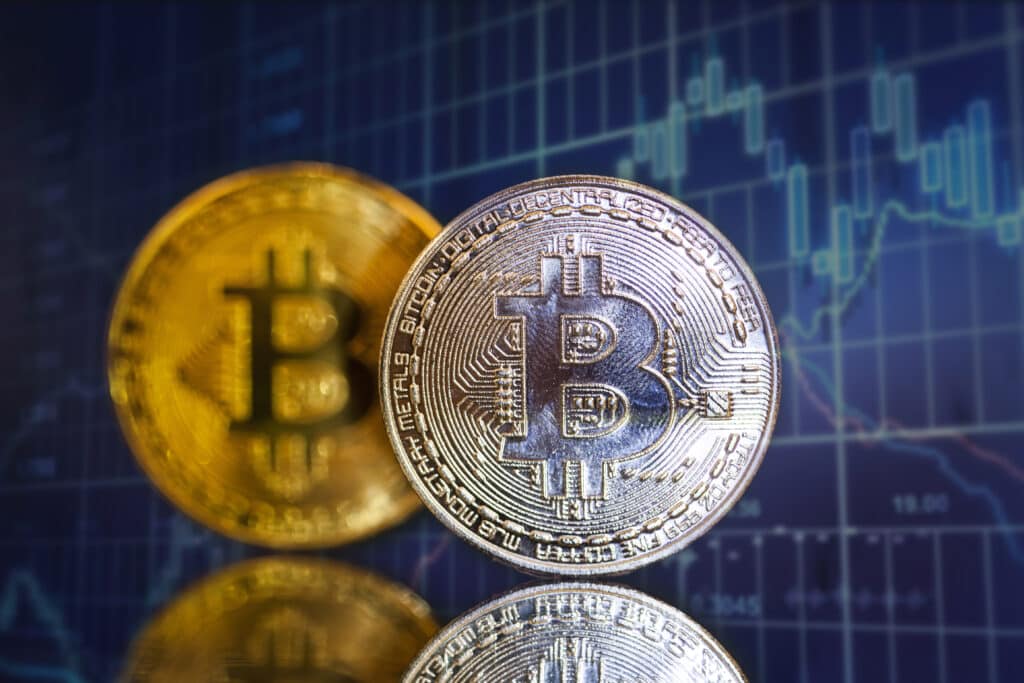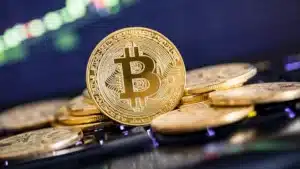Understanding Bitcoin: A Beginner’s Guide

Golden Bitcoin Cryptocurrency. New Virtual money concept.
Table of Contents
What is Bitcoin and Why Should You Care?
Bitcoin is a type of digital money that exists only in the virtual world. Unlike traditional currencies like dollars or euros, Bitcoin isn't controlled by any government or financial institution. Instead, it relies on a technology called blockchain, which ensures every transaction is secure and transparent. If you've ever wondered why people are so excited about Bitcoin, it's because it offers a new way to think about money and financial transactions.
How Does Bitcoin Work?
Bitcoin operates on a decentralized network of computers around the world. These computers, or “nodes,” keep track of all Bitcoin transactions in a public ledger called the blockchain. When someone makes a transaction, it gets added to a block of data. This block is then verified by other nodes and added to the chain, creating a permanent record.
Getting Started with Bitcoin
Creating a Wallet
To start using Bitcoin, you need a digital wallet to store your coins. There are different types of wallets, including:
- Hardware Wallets: Physical devices like Ledger or Trezor that store your Bitcoin offline.
- Software Wallets: Apps like Exodus or Electrum that you install on your computer or smartphone.
- Online Wallets: Web-based wallets like Coinbase or Blockchain.info, accessible from any device with an internet connection.
Each wallet type has its pros and cons, so choose one that fits your needs.
Buying Bitcoin
Once you have a wallet, you can buy Bitcoin from an exchange. Popular exchanges include:
- Coinbase: Great for beginners, with a user-friendly interface.
- Binance: Offers a wide range of cryptocurrencies and advanced trading features.
- Kraken: Known for its security and variety of funding options.
You can buy Bitcoin with traditional currency using bank transfers, credit cards, or even cash in some cases.
Bitcoin Transactions
Sending and receiving Bitcoin is straightforward. All you need is the recipient's wallet address, a long string of characters. Enter the address in your wallet app, specify the amount, and hit send. The transaction will be processed by the network and added to the blockchain.
Bitcoin Mining
Mining is how new Bitcoins are created. Miners use powerful computers to solve complex mathematical problems that validate transactions and add them to the blockchain. In return, they earn new Bitcoins. Mining requires significant investment in hardware and electricity, making it less accessible for everyday users.
The Benefits of Bitcoin
Decentralization
Bitcoin isn't controlled by any central authority. This means no government or bank can manipulate its value or supply. It's a currency of the people, by the people, for the people.
Transparency and Security
Every Bitcoin transaction is recorded on the blockchain, which is publicly accessible. This transparency ensures that transactions are secure and verifiable. Plus, the use of cryptographic techniques makes it nearly impossible to counterfeit or double-spend Bitcoin.
Lower Fees
Compared to traditional banking and payment systems, Bitcoin transactions often have lower fees, especially for international transfers. This makes it an attractive option for sending money across borders.
The Risks of Bitcoin
Volatility
Bitcoin's value can fluctuate wildly. It's not uncommon for its price to swing by thousands of dollars in a single day. This volatility can be a double-edged sword, offering opportunities for profit but also significant risk.
Security Concerns
While Bitcoin itself is secure, the platforms and wallets you use might not be. Hacks and scams are prevalent, so it's crucial to choose reputable services and secure your wallet with strong passwords and two-factor authentication.
Regulatory Uncertainty
Bitcoin's legal status varies by country. Some governments embrace it, while others impose strict regulations or outright bans. Staying informed about the legal landscape in your country is essential.
Frequently Asked Questions about Bitcoin
How can I keep my Bitcoin safe?
Use a reputable wallet, enable two-factor authentication, and keep your private keys secure. Consider using a hardware wallet for added security.
Can I use Bitcoin to buy things?
Yes, many merchants accept Bitcoin as payment for goods and services. You can also use Bitcoin to pay for online services, book travel, and more.
Is Bitcoin anonymous?
Bitcoin transactions are pseudonymous. While your identity isn't directly tied to your wallet address, all transactions are recorded on the public blockchain. If someone can link your identity to your address, your transactions are traceable.
What determines Bitcoin's price?
Bitcoin's price is determined by supply and demand on various exchanges. Factors influencing its price include market sentiment, regulatory news, and macroeconomic trends.
How can I learn more about Bitcoin?
There are many online resources, forums, and books dedicated to Bitcoin and cryptocurrencies. Websites like CoinDesk, Bitcoin.org, and YouTube channels like Andreas Antonopoulos are great places to start.














